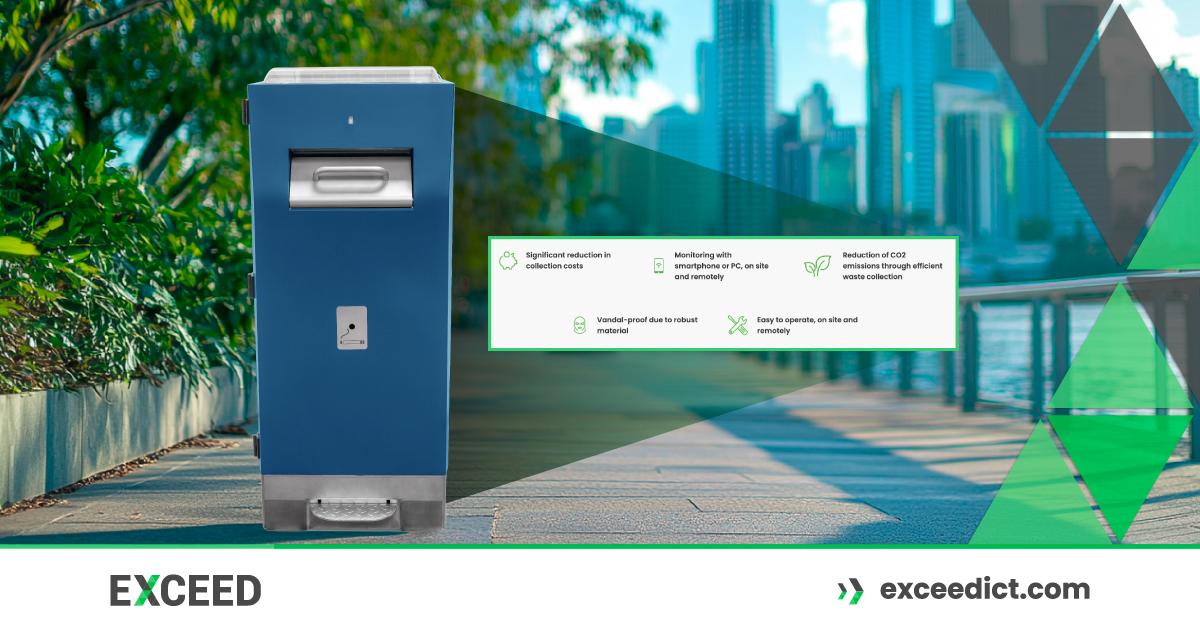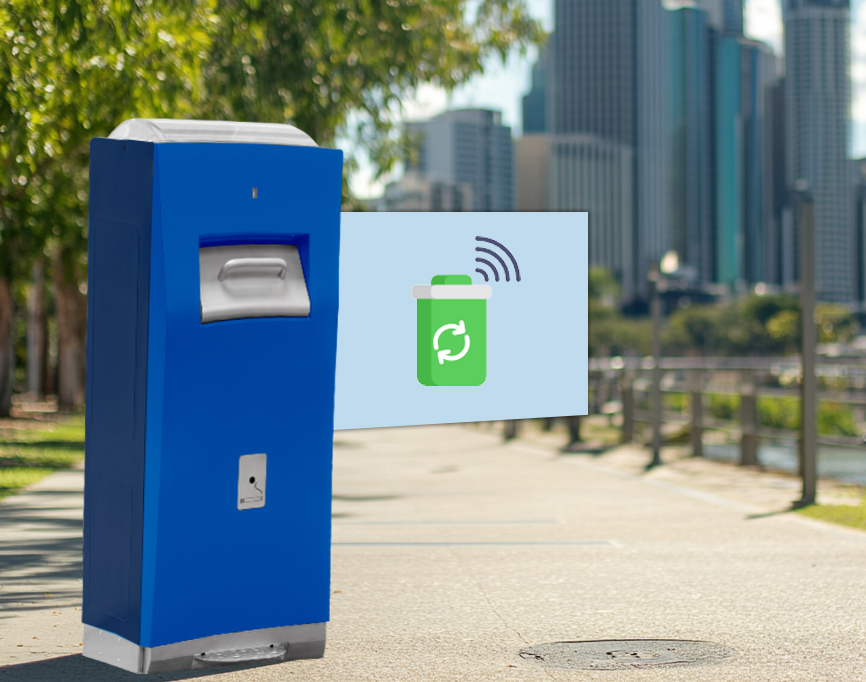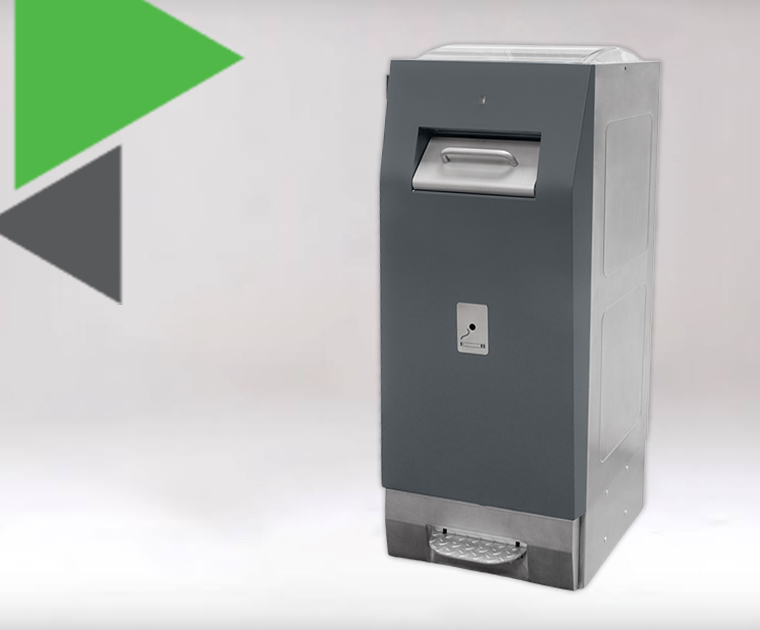
Smart waste management systems are transforming how waste is collected, processed, and disposed of by integrating advanced technology such as the Internet of Things (IoT) and data analytics. These systems help optimise waste collection, reduce landfill waste, and promote a more circular economy.
This article explores how smart waste management systems work, their benefits, the technologies involved, and their future in Australia.
What Are Smart Waste Management Systems?

Smart waste management systems use technology to enhance efficiency in waste collection and disposal. Unlike traditional methods that rely on fixed schedules and manual monitoring, smart systems use real-time data to optimise operations.
These systems typically include:
- IoT-enabled smart bins that monitor waste levels and notify collection services when they need to be emptied.
- AI-powered sorting technologies that improve waste segregation and recycling efficiency.
- GPS and route optimisation software that reduces unnecessary waste collection trips, lowering fuel consumption and carbon emissions.
- Predictive analytics that forecast waste generation trends, helping local councils and businesses plan more effectively.
By leveraging these technologies, smart waste management systems help improve sustainability, reduce costs, and enhance public health by keeping streets cleaner.
Benefits of Smart Waste Management Systems
Increased Efficiency and Cost Savings
Traditional waste collection follows a fixed schedule, which often leads to unnecessary trips, resulting in higher operational costs and wasted resources. Smart waste management systems eliminate inefficiencies by:
- Using real-time data to ensure collections only occur when bins are near capacity.
- Reducing fuel costs and vehicle emissions by optimising waste collection routes.
- Automating waste monitoring, reducing the need for manual inspections.
These improvements significantly cut down on operational expenses for local councils and private waste management companies.
Environmental Sustainability
Australia generates millions of tonnes of waste each year, much of which ends up in landfills. Smart waste management systems contribute to environmental sustainability by:
- Encouraging better waste segregation, leading to increased recycling rates.
- Reducing greenhouse gas emissions from waste collection trucks.
- Minimising landfill overflow by ensuring waste is collected efficiently.
With the Australian government pushing for a circular economy, smart waste management systems align with national sustainability goals by promoting waste reduction and resource recovery.
Improved Public Hygiene and Urban Aesthetics
Overflowing bins and uncollected waste create health hazards and diminish the appeal of public spaces. Smart bins equipped with sensors notify waste management teams before they reach capacity, preventing overflow and ensuring timely collection.
This approach not only maintains cleaner streets but also reduces the spread of pests and odours, improving overall public hygiene.
Data-Driven Decision Making
Smart waste management systems provide local councils and businesses with valuable insights into waste generation patterns. By analysing this data, stakeholders can:
- Identify high-waste areas and implement targeted waste reduction strategies.
- Adjust collection schedules based on actual demand rather than fixed routines.
- Improve recycling initiatives by understanding waste composition in different areas.
This data-driven approach ensures more effective waste management policies and resource allocation.
How Smart Waste Management Works in Australia
Australia is actively adopting smart waste management systems to address growing waste disposal challenges. Several local councils and businesses have implemented technology-driven solutions to optimise waste collection and recycling.
For example, some Australian cities have introduced:
- Smart bins in public areas that alert collection teams when they need emptying.
- AI-powered waste sorting facilities that improve recycling rates by identifying different materials more accurately.
- GPS-enabled waste collection trucks that follow optimised routes, reducing fuel consumption and carbon emissions.
The Australian government also supports smart waste initiatives through funding and policies that encourage sustainable waste management practices. Programs such as the National Waste Policy Action Plan aim to improve waste recovery and reduce landfill reliance through innovative technologies.
Key Technologies Powering Smart Waste Management
IoT-Enabled Smart Bins

Smart bins are equipped with sensors that detect fill levels, temperature, and even odours. These bins send real-time alerts to waste collection teams, allowing them to schedule pickups only when necessary. This prevents overflowing bins while reducing unnecessary collection trips.
GPS and Route Optimisation Software
Waste collection trucks use GPS technology combined with route optimisation algorithms to determine the most efficient collection routes. This reduces travel distances, lowers fuel consumption, and minimises emissions, making waste collection more environmentally friendly.
Blockchain for Waste Tracking
Blockchain technology is being explored for waste tracking and management. By providing a transparent and tamper-proof record of waste disposal and recycling activities, blockchain can help improve compliance with environmental regulations and promote greater accountability in waste management.
Challenges and Future of Smart Waste Management in Australia
Challenges
Despite its advantages, smart waste management faces several challenges:
High initial costs: Implementing IoT sensors, AI sorting systems, and data analytics platforms requires significant investment.
Integration with existing infrastructure: Many waste management systems still rely on traditional methods, making transition complex.
Public awareness and participation: Successful implementation depends on community engagement and education on smart waste practices.
Future Trends in Smart Waste Management
The future of smart waste management in Australia looks promising, with several advancements on the horizon:
- AI-driven waste segregation: Improved automation in sorting facilities will increase recycling rates.
- Robotic waste collectors: Autonomous waste collection vehicles may reduce the need for human-operated waste collection.
- Enhanced circular economy initiatives: More businesses and councils will adopt smart solutions to minimise waste production and maximise resource recovery.
As Australia continues to push for a more sustainable future, smart waste management systems will play a crucial role in reducing environmental impact and improving overall waste efficiency.
Conclusion
Smart waste management systems are transforming waste disposal by leveraging technology to improve efficiency, sustainability, and public health. By adopting solutions such as IoT-enabled bins and optimised collection routes, councils and businesses can significantly reduce costs, enhance recycling efforts, and contribute to a cleaner environment.
With government support and ongoing technological advancements, the future of waste management in Australia is shifting towards smarter, greener, and more sustainable solutions.
For those looking to improve their waste management strategies, investing in smart waste technology is a step in the right direction.
Give us a call at 1300 832 639.
Our team is ready to assist you in selecting the perfect smart bin solution tailored to your needs. Whether it’s for individual households or community-wide waste management, we’re here to help make your environment cleaner and more efficient. Give us a call today to learn more about how smart bins can revolutionise your waste management practices.
Find Related Blogs
- Solar-Powered Smart Bins Now Crushing Waste In Lake Mac.
- Waste intelligence Solutions for Smart Cities.
- Waste Mate Smart Bin For Smart homes.
- Smart Bins for Home and Smart Cities in Australia.
FAQs About Smart Waste Management Systems
How do smart waste management systems help the environment?
By optimising waste collection schedules and reducing unnecessary trips, smart waste management systems lower fuel consumption and greenhouse gas emissions. They also enhance recycling efforts by improving waste sorting and segregation, minimising landfill overflow, and encouraging sustainable waste disposal practices that align with circular economy goals.
How do IoT sensors improve waste collection efficiency?
IoT sensors provide real-time data on waste bin fill levels, helping waste management companies optimise collection schedules. This reduces unnecessary trips, lowers operational costs, and prevents overflowing bins. Some sensors also monitor temperature and odours, ensuring timely intervention for hazardous or decomposing waste.
What is route optimisation in waste management?
Route optimisation uses GPS and AI-driven algorithms to determine the most efficient waste collection routes. By reducing travel distances and avoiding traffic congestion, this technology helps waste collection vehicles save time, cut fuel costs, and lower emissions while ensuring bins are serviced promptly and efficiently.
How does smart waste management support a circular economy?
Smart waste management systems improve recycling and resource recovery by ensuring effective waste segregation and tracking. They help reduce landfill dependency by encouraging waste reduction and promoting sustainable reuse and recycling practices, aligning with Australia’s circular economy goals for a more sustainable future.
Are smart waste management systems cost-effective for businesses?
Although initial implementation costs can be high, smart waste management systems provide long-term savings by reducing waste collection expenses, optimising resource allocation, and minimising landfill fees. Businesses benefit from improved efficiency, sustainability, and compliance with waste management regulations.
How do smart waste management systems enhance public hygiene?
By preventing overflowing bins and ensuring timely waste collection, smart waste management systems reduce litter, odours, and pest infestations. This creates cleaner streets and public spaces, improving hygiene and enhancing the overall quality of life in urban and residential areas.
How can Australian cities adopt smart waste management?
Australian cities can implement smart waste solutions by investing in IoT-enabled bins, AI-powered waste sorting, and route optimisation software. Government support through funding, policies, and sustainability initiatives can accelerate adoption, helping cities transition to more efficient and eco-friendly waste management practices.
What is the future of smart waste management in Australia?
The future of smart waste management in Australia includes advancements in AI-driven waste segregation, blockchain waste tracking, robotic waste collectors, and enhanced circular economy initiatives. As technology evolves, more cities and businesses will adopt smart solutions to improve efficiency, reduce waste, and promote environmental sustainability.


